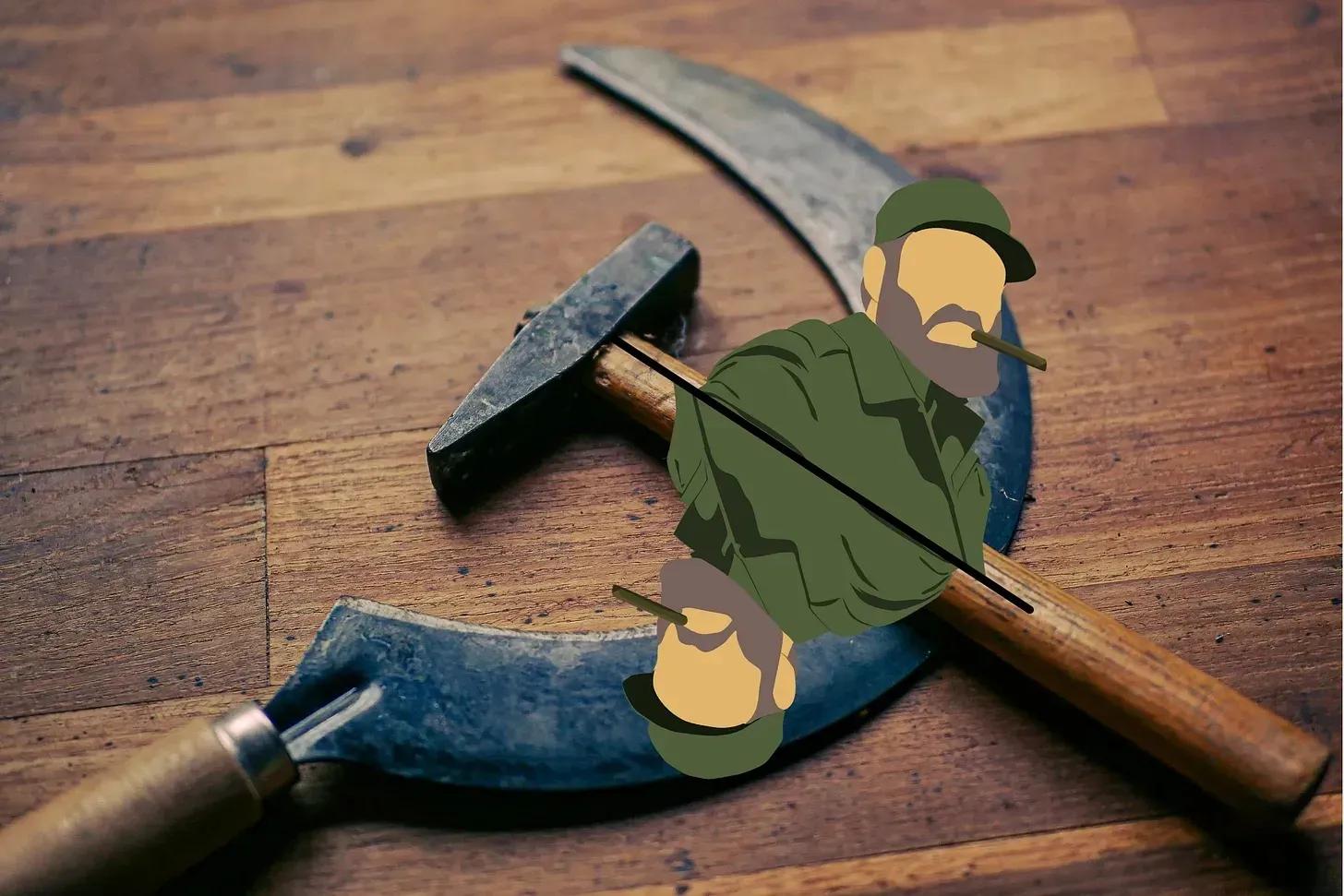Andrés Alburquerque, senior member, MSI² for FinGurú
Contrary to the sophisticated narrative that portrays the more than fifty years of "free" Cuba as a compliant satellite of the United States, the island was, from its beginnings, a hotbed of toxic anti-Americanism disguised as "anti-imperialism." This sentiment was fueled by the false belief that the U.S. Army had frustrated Cuba's independence from Spain. From this perspective, Castro's virulent hatred of the United States was not accidental, but inevitable.
Many insist that one can be anti-American without being a communist. I argue that this is a myth. In practice, anti-Americanism drags us, sooner or later, into the orbit of Fabian socialism and, ultimately, communism. Whatever ideological path Castro claimed to have taken, it was prepared, encouraged, and protected from the early days of his political career by official and clandestine members of the PSP (Partido Socialista Popular), the Communist Party of Cuba.
The PSP: Moscow's iron fist in Cuba
The PSP was not a group of dreamers; it was the Cuban arm of Soviet foreign policy long before Castro gained notoriety.
• 1930s – Entry into the Soviet Union: Founded in 1925 and quickly absorbed by the Comintern in Moscow, the PSP was led with strict Stalinist discipline by leaders like Blas Roca and Carlos Baliño, skillfully trained by a key man from Poland named Fabio Grobart.
• Union control: By 1935, PSP cadres had infiltrated Cuban unions, especially in the sugar and port sectors, using strikes as tools of Soviet strategy.
• Political legitimacy: In 1940, the PSP obtained legal status by joining Batista's electoral coalition, ironically collaborating with the man whom Castro would later overthrow.
• Alignment during wartime: Following the German invasion of the USSR in 1941, PSP propaganda was fully aligned with Moscow's wartime needs. Postwar clandestinity: From 1945 to 1952, the PSP partially went underground but maintained control over unions, student groups, and media.
Approach to Castro: By 1956, PSP intelligence identified Castro as the most viable vehicle for establishing a Soviet-aligned state in Cuba. By 1958, they fully backed him, preparing for a post-Batista transition.
The communist preparation of Castro before 1959
Far from being a nationalist who turned communist under pressure, Castro's ties to Marxist networks began in his youth:
• 1947 – Cayo Confites case: He joined an armed expedition against Dominican dictator Rafael Trujillo, organized with Caribbean communist groups.
• 1948 – Bogotá riots: Present during the Bogotazo uprising, associating with Colombian communists.
• 1949-1952 – Student activism: He forged ties with PSP operatives at the University of Havana, participating in anti-American agitation aligned with communist rhetoric.
• 1953 – Moncada Attack: While not openly Marxist in his manifesto, the attack included PSP supporters and followed destabilization tactics.
• 1955 – Alliance with the PSP: After leaving prison, he forged stronger ties with leaders like Blas Roca and Carlos Rafael Rodríguez, securing funding and propaganda channels. • 1956 – Mexican exile: He formed alongside communists in Mexico, integrating Che Guevara, a committed Marxist, into his inner circle before returning to Cuba.
• 1958 – Coordinated propaganda: The PSP provided full support to Castro's guerrillas, aligning their press and networks with Soviet expectations.
The myth of the “cornered nationalist”
The claim that Castro was simply a nationalist “pushed to communism” by ambitious American corporations serves two purposes:
1. To divert attention from the truth: that Castro's revolution was the culmination of decades of Soviet preparation in Cuba.
2. To cultivate guilt among Western academics and lawmakers, undermining the ability of the United States to confront communist expansion.
The refusal, even today, of many academics to recognize the Cuban Revolution as a Soviet coup underscores the deep infiltration of Fabian tactics into Western thought. The contamination persists: even now, the specter of electing a communist mayor in New York follows the same script that led Cuba to dictatorship: capitalism is selfish, it must be dismantled and replaced by a “better” system.
The Orwellian irony
The tragedy is not only that communism took root in Cuba but that the so-called "imperialists" funded it. Just like in Orwell's Animal Farm, capitalists gave their enemies the rope to hang them; and in Castro's saga, the knot was tied long before 1959.
Andrés Alburquerque is a political analyst, university professor, and media personality born in Cuba, known for his outspoken defense of democratic values and his strong criticism of authoritarianism in Latin America. Born in Havana in 1956 into a communist family, he early witnessed the disillusionment that followed the Cuban Revolution, a turning point that shaped his lifelong commitment to political truth and civic freedom. Forced into exile, Alburquerque lived in Europe and Latin America, including Italy, the Dominican Republic, and Mexico, before establishing his permanent residence in the United States in 2007. Since then, he has been an active voice in the Republican Party, known for his independent opinions and willingness to confront ideological complacency within its political ranks. Alburquerque is the author of Ten Cuban Stories More or Less, a literary work reflecting his deep cultural roots and critical perspective on Cuban society. He also hosts Enfoque Ciudadano, a YouTube program dedicated to analyzing the political and social dilemmas facing American democracy in light of the growing influence of the left. His experience and knowledge have made him a frequent guest on radio and television programs in Miami, where he offers commentary on Cuba, human rights, and regional politics.

Comments